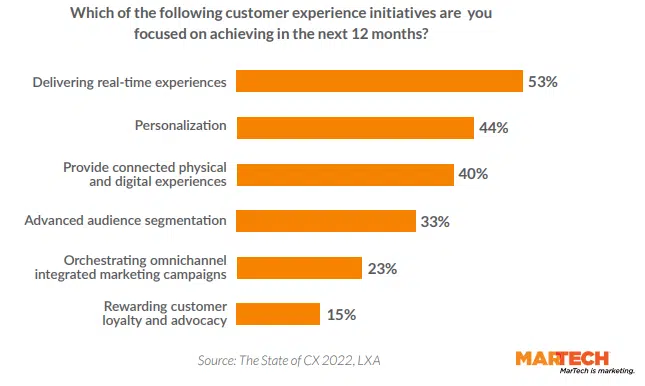Does your organization need a marketing automation platform?
The benefits of using a MAP start with real-time, personalized, omnichannel experiences — but they don't end there.
Does every marketing organization need a marketing automation platform? There are so many use cases it’s hard to imagine most marketing teams won’t find compelling reasons to automate at least some of their processes.
Our new report, “Marketing Automation Platforms: A Marketer’s Guide” is now available for free download.
Though MAPs aren’t the newest tools in marketers’ tech stacks, they are still central to the business
strategies of both B2B and B2C companies, especially those in the ecommerce space. MAPs help
businesses automate and streamline their marketing efforts by providing a wide range of features
and functionalities, such as automating repetitive tasks and workflows.
Real-time, personalized, omnichannel experiences
Marketers are using the tools at their disposal, including marketing automation
platforms, to deliver real-time, personalized, omnichannel experiences utilizing advanced
audience segmentation, with a survey of CMOs conducted by LXA finding that these are some of
marketers’ highest-priority initiatives.

Marketing automation platforms for ABM
In the B2B arena, where marketing automation originally established itself as a key technology,
marketers are increasingly adopting account-based marketing (ABM) practices, with 40 to 60%
of programs currently leveraging marketing automation platforms to further these strategies, a survey conducted by Momentum ITSMA and the ABM Leadership Alliance found.
“We’re in a phase now where companies see tech investment as a number-one priority,” said Will
Nicholls, Chief Customer Officer of Momentum ITSMA, in a podcast on the topic. “We’re seeing
more and more adding tools to automate and create greater leverage for existing platforms, in a
sensible way that still preserves the principles of ABM.”
The benefits of marketing automation
The proliferation of channels and devices makes it difficult to target prospects with the right
messages, on the right devices, at the right times. The rapid shift to all-online interactions sparked
by the COVID pandemic also raised the level of competition in the inbox, so relevant messaging is
more important than ever.
In the B2B arena, prospects are managing more of the buying process themselves. They are creating
short lists of vendors by researching brand websites and social channels without ever speaking to
a sales rep. Being effective in this environment means marketers must be creative, targeted and
aligned with sales goals; they must also have visibility into buyer attributes and behaviors.
Challenging market dynamics and increased ROI pressure make these potential benefits of a MAP
more attractive than ever.
Increased marketing efficiency. Automating time-consuming, manual tasks around content
creation, management and personalization; campaign scheduling and execution; data hygiene
(i.e. duplicate or inconsistent data residing in various silos); communication with sales; and
lead nurturing saves time and improves productivity. The incorporation of AI and machine
learning — which we expect to grow dramatically in the coming years — will drive even more
efficiency, as these tools become more sophisticated and can pick up more and more of
the weight of repetitive tasks. One especially promising area is the potential for AI-generating
personalized content for messaging, landing pages and campaign creative, with the technology
determining how audiences should be segmented and who should receive what version.
Enhanced ability to generate more and better-qualified leads. Marketing automation can
combine multiple criteria, including demographic, firmographic and behavioral data with a
lead-scoring system to generate and identify sales-qualified leads. The addition of AI and
machine learning makes this process even more effective, as the tools can bring together a
large amount of data and may pick up on patterns missed by humans.
A multichannel view of prospect behavior. Today’s MAPs integrate multiple channels and
devices — including social media and mobile — to create more comprehensive prospect profiles
and holistic views of prospect behavior. Platforms with strong ABM capabilities let marketers
see the behavior of a buying group, as well as learn the interests of each individual in it.
Better alignment of sales and marketing goals. MAPs can help align sales and marketing
efforts to ensure that sales reps are working with sales-ready leads. By jointly setting scoring
parameters and defining qualified leads, sales and marketing work better together. Marketing
focuses on building relationships with early-stage leads, which lets sales work on closing the
most highly qualified prospects.
Improved lead conversion and ROI. Numerous studies have found that using a marketing
automation system can increase conversions. Forrester found that B2B marketers who
implement marketing automation have a 10% increase in their sales pipeline contribution.
It can also result in a 15% increase in sales productivity and a 12% decrease in marketing
overhead, according to tech research firm Nucleus Research.
For much more detail about the potential benefits of B2B MAPs, download the latest edition of our free report, “Marketing Automation Platforms: A Marketer’s Guide.”
Related stories